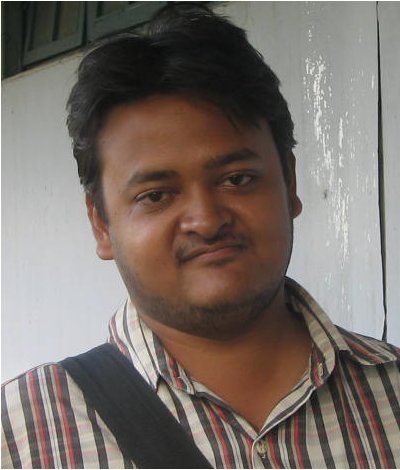Recent Colloquium
Colloquium # 256
Fermi acceleration in billiards with holes
by Dr. Kushal Shah
Asst. Prof. Electrical Engineering Dept, IIT Delhi
Tuesday, 20th October at 3:30PM, Seminar Hall

Abstract
Fermi acceleration is the study of energy growth of particles moving within a closed billiard undergoing elastic collisions with its walls.
This model can be used to study plasma heating in tokamaks, mesoscopic systems, etc. However, many of these physical systems are not closed but have an exchange of particles across the boundaries. For example, in modeling of RF heating in tokamaks, Fermi acceleration is applicable to electrons in the sheath region but these electrons keep moving back and forth between the sheath and bulk. Our study of Fermi acceleration in billiards with a small hole is the first step towards a better understanding of such open systems. We assume that the particles do not collide with each other and the hole size is small enough so that the particles remain within the billiard for a sufficiently long time. Our primary result is a theoretical estimate of the net energy flow through the hole and we have verified this through numerical simulations [Physical Review E 91, 062920 (2015)]. We find that the heat production strongly depends on the type of the Fermi accelerator. A leaky ergodic accelerator (one which has a single ergodic component, and has quadratic-in-time energy growth without the hole) produces a much lower energy flow than a leaky multi-component accelerator (which has exponential-in-time energy growth without the hole). Specifically, the energy gain is independent of the hole size if the accelerator is ergodic, whereas the energy flow may be significantly increased by shrinking the hole size in the exponential accelerator. Work done jointly with : Vassili Gelfreich, Vered Rom-Kedar and DmitryTuraev.
About the speaker
Kushal Shah did his BTech and PhD in Electrical Engineering from IIT Madras in 2005 and 2009 respectively. His PhD work was on a theoretical analysis of plasma dynamics in Paul traps. During his PhD, he has also spent six months at IPR (Gandhinagar) for his course work. After PhD, he was a post-doctoral fellow at the Weizmann Institute of Science (Israel) in the Department of Applied Mathematics and Computer Science for one year. In 2010, he joined the School of Computational and Integrative Sciences at Jawaharlal Nehru University (New Delhi) and then finally moved to IIT Delhi in 2012 where he is currently an Assistant Professor in the Department of Electrical Engineering. He is also recipient of the INAE Young Engineer Award 2014. His research interests are
mainly plasma science, dynamical systems and random processes.

